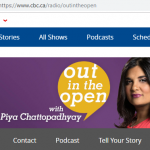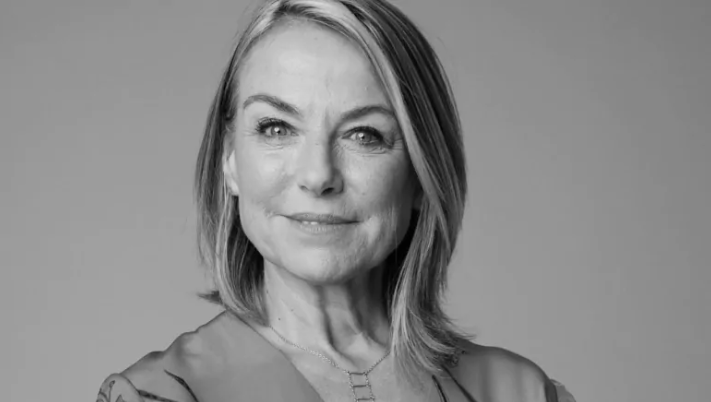Esther Perel says, “the quality of our relationships determines the quality of our lives.” Perel, the popular Belgian psychotherapist and relationship expert, has made it her mission to help us improve how we connect.
Over the years, I’ve discovered and adapted much from experts in human relationships (e.g., John Gottman’s magic relationship ratio); to my work, promoting collaborative relationships, managing conflict, and in my personal life. Perel is one of those relationship experts.
 Perel shared her thoughts on relationships, in a recent, wide-ranging interview, with CBC ‘Out in the open’ radio host, Piya Chattopadhyay.
Perel shared her thoughts on relationships, in a recent, wide-ranging interview, with CBC ‘Out in the open’ radio host, Piya Chattopadhyay.
About Esther Perel
A zeitgeist for our times, “her books have been translated into dozen of languages and her TED talks viewed by millions. She’s also known for her boundary-pushing podcast, Where Should We Begin?, which lets listeners in on intimate therapy sessions, often between couples exploring some of their most vulnerable feelings.” I’ve listened to a number of those podcast sessions – the format is truly unique. That said, Perel is professional, respectful of the dignity and confidentiality of her clients.
Perel’s passion and interest in how people relate to each other is rooted in her family history. Both of her parents were Holocaust survivors – the sole survivors of their respective families.
[I have an affinity for Perel. My father was a German Jew who barely escaped from Nazi Germany. Perel has been married to the same man for 30 years. I have been married to the same woman for 31 years (which amazes me, in a good way). Perel humbly describes herself as a “student of relationships”. Well, I’m not sure about humility, but I most definitely am a student (no expert, am I) of relationships.]
The quality of our relationships determines the quality of our lives
In the interview, Perel touches on ways to improve relationship quality, by:
- Investing in ‘presence’ – devote your energies to the relationship(s) that matter most – “are you bringing the best of you to work, and the leftovers home?”
- Working with paradox – the paradox of the modern day relationship: we want one person to give us so much (security, adventure, stability change, dependability, surprise… “we want this same person to still be our best friend, and our trusted confidante and our passionate lover”) and, at the same time, never has it been easier for us to disengage, leave the other, transgress on the other…
- Balancing separateness versus togetherness, freedom versus commitment, show “maturity”
- Understanding that relationships evolve – “I’ve had three marriages (different relationships) with the same person, my husband” – power dynamics shift
- Understanding the stories we tell, about ourselves, and about others – we are creatures of meaning and live through stories, and if your story isn’t working, give it up (reminds me of Byron Katie’s ‘work’ and “who would you be without your story?”)
- Letting go – “if you live all the time on guard, you can’t let go”
- Valuing your relationship work as much as your achievements/results (that resonates with the 50:50 leader; the leader who spends as much time on the quality of interactions and relationships as on results and profits)
More from Perel
- In days past, relationships used to be organized around obligations and duty. Today, at least in the West, relationships are organized more around negotiations and conversation – decision-making is up to us. In an individualistic society, you feel responsible to solve the problem yourself. In collectivist societies, there is more reliance on the village.
- Polarization is largely the inability to tolerate others; to deal with uncertainty, no matter the issue; climate, gender, race…
- Camp vs. community – Camps breed hierarchy, homogeneity, certainty, insulation, internal fighting. Community is inclusivity, welcoming the stranger into your midst, otherness.
- Acknowledging others makes you feel human – how you make yourself feel flows from how you treat the other.
- “The lives of women will not (appreciably) change until men have the opportunity to rethink their identity, in the way that many women have been able to do for the last 50 years”
The big takeaway
“Relationships – it’s at the core of our existence. And so often, we don’t really talk about them, in-depth. We brush over them. We trample them. We neglect them.
We put achievement and products ahead of people. Many, many people are in need of having difficult conversations at this moment – somebody they owe an apology to forever. Really, the fabric of our society is relationships.”


Speak Your Mind